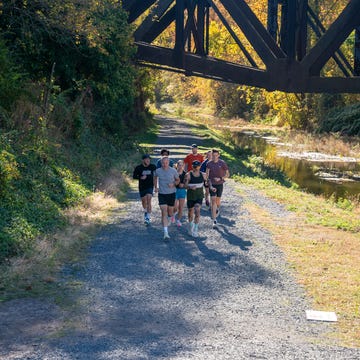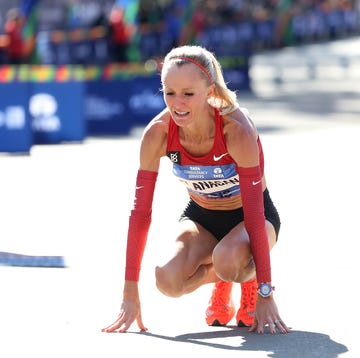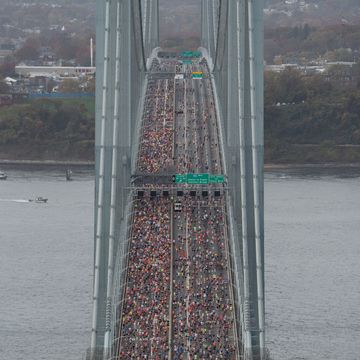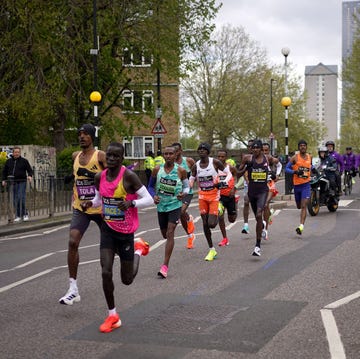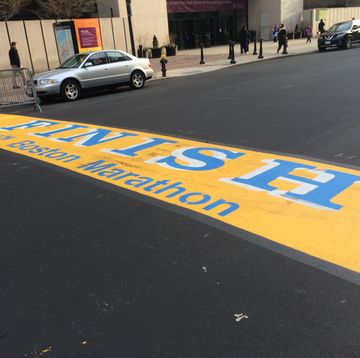In 2011, Wilson Kipsang was preparing for the Frankfurt Marathon when he learned firsthand that world records fall when you least expect.
"The focus of my preparations for Frankfurt was to run faster than 2:03:59," he says, in reference to Haile Gebrselassie's world record at the time. "It came as a surprise when Patrick Makau broke the world record in Berlin. I did not expect him to be able to run 2:03:38. I was not ready to run that fast."
After falling short of the record with his winning time of 2:03:42 in Frankfurt, Kipsang noted the changes he needed to make.
Kipsang credits those changes with his ability to break the world record, which he did with his 2:03:23 victory in last September's Berlin Marathon.
"You really have to plan for many months," Kipsang says. "You must think about what kind of time you want to run and then understand the paces you must prepare for. You must find the right partners for your training group; you have to figure out the right place for training. There is a lot that goes into it."
That process for Kipsang began almost immediately after his fifth-place finish in 2:07:47 at the 2013 London Marathon. The first major change he made was paring the size of his training group from 40 runners to 15 for long runs, including his trusted pacer, Edwin Kiptoo. The reasons behind it, he says, were logistical and financial.
Kipsang trained in Iten and Eldoret, which is two hours by car from his home in Kapng'etuni. As the alpha dog of the group, he was responsible for the meals, lodging and provision of running gear for his training partners. Kipsang says it is not uncommon for totals to exceed 500,000 Kenyan shillings, or about $5,800.
"I had to cut it back because for this training I had to go to a lot of places for long runs and speed work, and the program was very expensive," he says.
Nailing those long runs might have been the most critical element that Kipsang got right in the training cycle. When he looked back on Frankfurt, he felt he did not have the requisite speed, endurance or stamina to attack in the latter stages of the race.
For these runs, he chose the 40K road from Iten up into Elgeyo-Marakwet County, west of the Cherangani Hills. The goal was to complete the escalating run--it finishes at more than 8,000 feet in elevation--in about 1 hour 40 minutes.
"If you train hard in the hills, it makes you stronger, particularly in the second half of the marathon," Kipsang says. "In Frankfurt, the end of the race was a problem for me."
How to Increase Mileage Running.
"I noticed that I felt really good after the long runs. I said to myself, 'Wow, I feel strong. I am not hurting.' That is when I knew that I was ready," he says. "I came away from the preparations knowing I was ready to run fast. I believed that anything was possible."
For his speed work, Kipsang was joined by a star-studded cast, all of whom had triumphant turns during the fall marathon season. Dennis Kimetto won the Chicago Marathon. Geoffrey Mutai won the New York City Marathon. Wilson Chebet? He was the Amsterdam Marathon champion. And Vincent Kipruto won Frankfurt.
After securing his own place in history in Berlin, the 31-year-old isn't resting on his laurels. Kipsang wants a victory at the 2015 Beijing world championships and 2016 Rio Olympics. He also wants to "take the world record to a safe place."
But what exactly is safe in an era that has produced 22 of the 30 fastest times in history over a three-year span?
"In my mind, a safe place is probably 2:02:58," Kipsang says. "It will be very difficult to run under 2:03."
Marathon Pace Charts for Fine-Tuning Training.
"In Berlin, there was a long time when we were behind world-record pace, and it took a lot to see our way back," he says. "We also need more pacemakers, to make sure that we are hitting all of the times from the first 5K."
He won't give it another try until the fall.
"I need more time," he says with a laugh. "I may need to do two times as much preparations."


